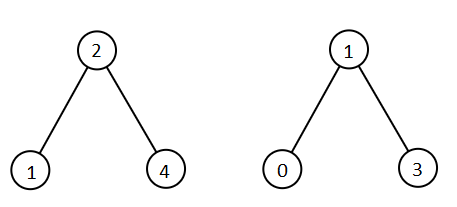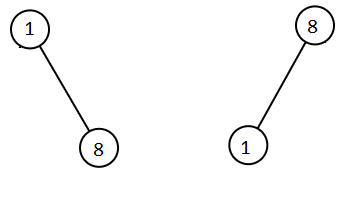Given two binary search trees root1 and root2, return a list containing all the integers from both trees sorted in ascending order.
Example 1:

Input: root1 = [2,1,4], root2 = [1,0,3] Output: [0,1,1,2,3,4]
Example 2:

Input: root1 = [1,null,8], root2 = [8,1] Output: [1,1,8,8]
Constraints:
- The number of nodes in each tree is in the range
[0, 5000]. -105 <= Node.val <= 105